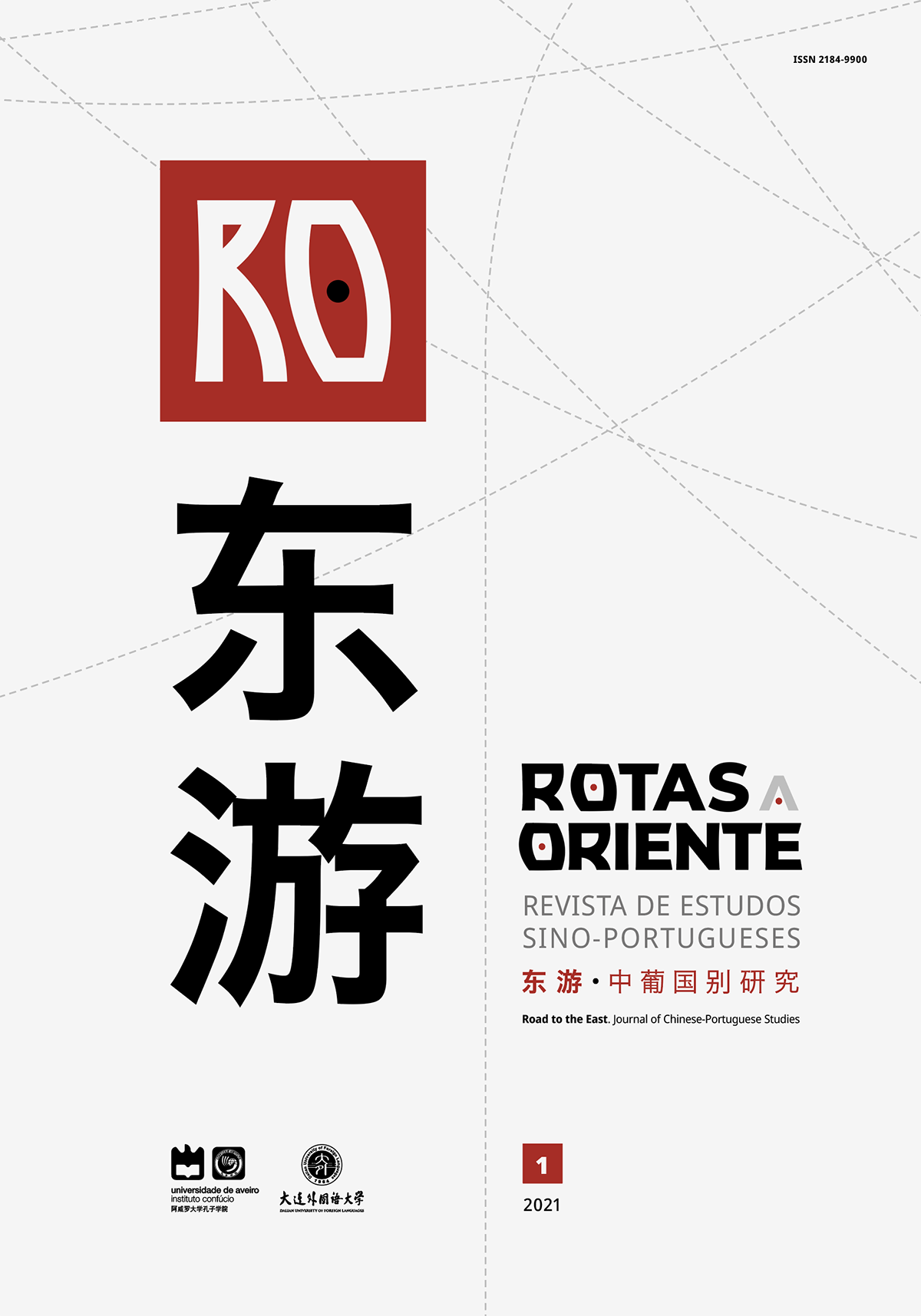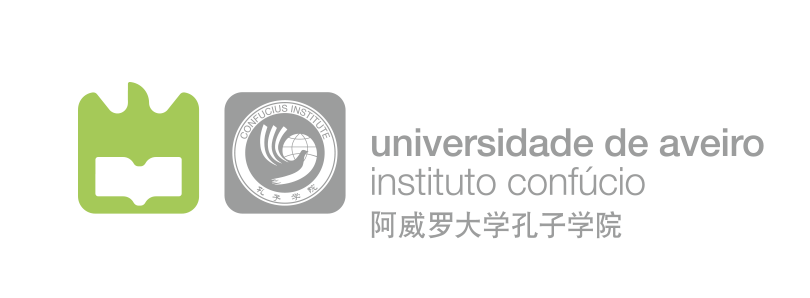Oportunidades e desafios da aplicação de uma plataforma de microblogue chinesa no ensino de Português Língua Estrangeira
Resumo
Sendo uma ferramenta bastante popularizada no mundo atual, as redes sociais estão a ser utilizadas cada vez mais para fins educativos nos últimos anos. Quanto à aprendizagem de Português Língua Estrangeira, poucos estudos revelam as vantagens e desvantagens da aplicação das redes sociais durante o processo de aprendizagem nos pontos de vista dos estudantes. O presente estudo visa apresentar detalhadamente a visão de dez aprendentes chineses que participaram em duas atividades desenvolvidas na plataforma microblogue – Weibo. Todos os participantes foram solicitados a responder a oito perguntas com o objetivo de entender, na sua opinião, as diferenças trazidas pelo Weibo na aprendizagem, a atitude relativamente ao uso da rede social na aprendizagem e as suas vantagens e desvantagens logo após a conclusão das atividades. De acordo com os entrevistados, chegámos à conclusão de que o Weibo pode construir de certa forma um ambiente natural de aprendizagem de Português Língua Estrangeira.
Referências
Abney, A. K., Cook, L. A., Fox, A. K., & Stevens, J. (2019). Intercollegiate social media education ecosystem. Journal of Marketing Education, 41(3), 254-269. DOI: 10.1177/0273475318786026.
Água-Mel, C. (2014). O ensino do Português em Macau: Por que razão aprender só a escrever não chega? In M. J. Grosso & A. P. C. Godinho (eds.), O Português na China (pp. 21-40). Lisboa: Lidel.
Baralt, M. (2011). The use of social networking sites for language practice and learning. Ilha do Desterro, 60, 277-303. DOI: 10.5007/2175-8026.2011n60p277.
Bartow, S. M. (2014). Teaching with social media: disrupting present day public education. Educational Studies, 50, 36-64. DOI: 10.1080/00131946.2013.866954.
Davis, W. M., Ho, K., & Last, J. (2015). Advancing social media in medical education. Canadian Medical Association Journal, 187(8), 549-550. DOI: 10.1503/cmaj.141417.
Gonulal, T. (2019). The use of Instagram as a mobile-assisted language learning tool. Contemporary Educational Technology, 10(3), 309-323. DOI: 10.30935/cet.590108.
Hattem, D. & Lomicka, L. (2016). What the Tweets say: A critical analysis of Twitter research in language learning from 2009 to 2016. E-Learning and Digital Media, 13(1–2), 5-23. DOI: 10.1177/2042753016672350.
Ho, K. (2014). Harnessing the social web for health and wellness: issues for research and knowledge translation. Journal of Medical Internet Research, 16(2), e34. DOI: 10.2196/ jmir.2969.
Hwang, G. & Fu, Q. (2019) Trends in the research design and application of mobile language learning: A review of 2007–2016 publications in selected SSCI journals. Interactive Learning Environments, 27(4), 567-581. DOI: 10.1080/10494820.2018.1486861.
Kabilan, M. K., Ahmad, N., & Abidin, M. J. Z. (2010). Facebook: An online environment for learning of English in institutions of higher education? Internet and Higher Education, 13, 179-187. DOI:10.1016/j.iheduc.2010.07.003.
Kirschner, P. A., & Karpinski, A. C. (2010). Facebook and academic performance. Computers in Human Behavior, 26, 1237-1245. DOI: 10.1016/j.chb.2010.03.024.
Kramsch, C. (2014). Teaching foreign languages in an era of globalization: Introduction. The Modern Language Journal, 98(1), 296-311. DOI: 10.1111/j.1540-4781.2014.12057.x.
Lantz-Andersson, A. (2017). Language play in a second language: Social media as contexts for emerging Sociopragmatic competence. Education and Information Technologies, 705–724. DOI: 10.1007/s10639-017-9631-0.
Lomicka, L., & Lord, G. (2012). A tale of tweets: Analyzing microblogging among language learners. System, 40, 48-63. DOI: 10.1016/j.system.2011.11.001.
Ma, Q. (2017). A multi-case study of university students’ language-learning experience mediated by mobile technologies: A socio-cultural perspective. Computer Assisted Language Learning, 30(3-4), 183-203. DOI: 10.1080/09588221.2017.1301957.
Manca, S. (2020). Snapping, pinning, liking or texting: Investigating social media in higher education beyond Facebook. The Internet and Higher Education, 44, 1-13. DOI: 10.1016/j. iheduc.2019.100707.
Montero-Fleta, B., Pérez-Sabater, C., & Pérez-Sabater, M. L. (2015). Microblogging and blended learning: Peer response in tertiary education. Procedia - Social and Behavioral Sciences, 191, 1590-1595. DOI: 10.1016/j.sbspro.2015.04.384.
Omoera, O. S., Aiwuyo, O. M., Edemode, J., & Anyanwu, B. (2018). Impact of social media on the English language writing abilities of undergraduates in Ekpoma, Nigeria. Gist Education and Learning Research Journal, 17, 59-80. DOI: 10.26817/16925777.412.
Pimmer, C., Chipps, J., Brysiewicz, P., Walters, F., Linxen, S., & Gröhbiel, U. (2017). Facebook for supervision? Research education shaped by the structural properties of a social media space. Technology, Pedagogy and Education, 26(5), 517-528. DOI: 10.1080/1475939X.2016.1262788.
Plutino, A. (2017). Teachers as awakeners: a collaborative approach in language learning and social media. In C. Álvarez-Mayo, A. Gallagher-Brett, & F. Michel (eds.), Innovative Language Teaching and Learning at University: Enhancing Employability, 115-125. DOI:10.14705/rpnet.2017.innoconf2016.661.
Sauro, S. (2009). Computer-mediated corrective feedback and the development of L2 grammar. Language Learning & Technology, 13(1), 5-12. [Disponível em http://llt.msu.edu/ vol13num1/sauro.pdf, consultado em 31/07/2020].
Smith, E. E. (2016). “A real double-edged sword:” undergraduate perceptions of social media in their learning. Computers & Education, 103, 44-58. DOI: 10.1016/j. compedu.2016.09.009.
Songxaba, S. L., & Sincuba, L. (2019). The effect of social media on English second language essay writing with special reference to WhatsApp. Reading & Writing, 10(1), a179, DOI: 10.4102/rw.v10i1.179.
Wong, L., Chai, C., & Aw, G. (2017). Seamless language learning: Second language learning with social media. Media Education Research Journal, 50(25), 9-20. DOI: 10.3916/ C50-2017-01.
Ye, Z. (2014). Algumas considerações sobre a expansão do ensino da língua portuguesa na China. In M. J. Grosso & A. P. C. Godinho (eds.), O Português na China (pp. 41-54). Lisboa: Lidel.
Os direitos permanecem com os autores.
Licença Creative Commons: Atribuição 4.0 Internacional.








